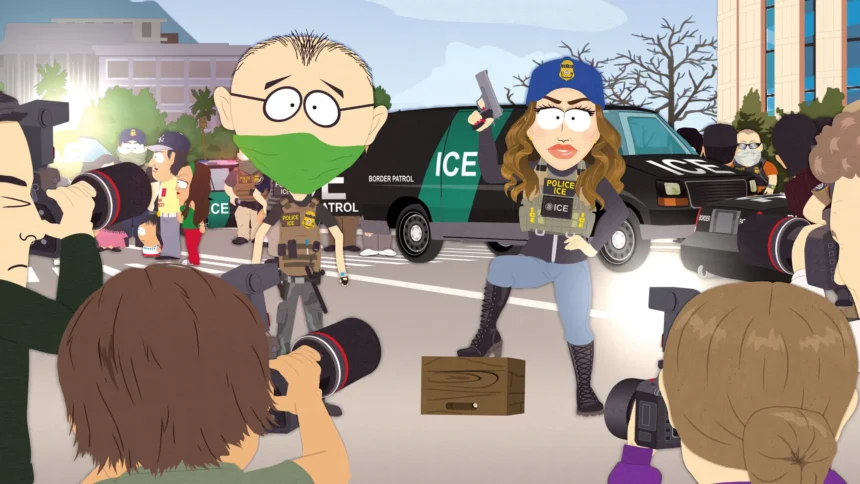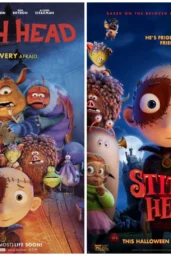Back in ‘97, I was a grad student sneaking South Park episodes on a clunky CRT television, marveling at how Trey Parker and Matt Stone could turn crude animation into cultural lightning. Fast forward to today, and they're still at it—except now, Paramount's pulled the “Got a Nut” episode from Comedy Central reruns in the wake of Charlie Kirk's assassination on September 10th, 2025. The episode, which premiered August 6th as the second of the show's 27th season, remains untouched on Paramount+, a move that feels like a studio hedging its bets in a tense moment.
The removal ties directly to the real-world shock of Kirk's death. The 31-year-old right-wing activist and founder of Turning Point USA was shot in the neck during a public event at Utah Valley University, a tragedy that's sparked a manhunt and heated discourse across the U.S. Kirk's outspoken presence, especially as a Trump ally, made him a lightning rod, and “Got a Nut” didn't shy away from that energy. Its subplot has Clyde Donovan and Eric Cartman playing right-wing podcasters, decked out in exaggerated, almost caricature-like setups—think garish mics, flashing graphics, and that flat South Park aesthetic that somehow makes the absurd feel grounded. Kirk himself called the episode a “badge of honor” in a Fox News interview last month, even briefly swapping his YouTube profile to Cartman as a nod.
Visually, the episode leans into the podcasting boom with quick cuts and a lo-fi vibe, poking fun at the performative outrage of online media. The main plot, a send-up of ICE raids, is classic South Park: brash, irreverent, and drawn in that deceptively simple style that's been the show's backbone since the ‘90s. The animation doesn't dazzle—it never needed to. It's the writing that bites, and here, it bit close enough to reality to prompt Paramount's caution. Deadline reports the rerun pull is “temporary,” a move to cool things down amid the fallout from Kirk's killing. It's not the first time South Park's faced this—episodes like “201” or “Super Best Friends” got similar timeouts, only to creep back once the air cleared.
This isn't just about one episode, though. It's about South Park's knack for dancing on the edge of chaos, using animation to say what live-action often can't. Kirk's death, still raw and under investigation, casts a long shadow—his influence on young voters and his vocal stances made him a target, and the episode's parody hit too close to home for some. Paramount's split strategy—keeping it on streaming but off linear TV—shows how studios navigate these flashpoints in 2025. It reminds me of the early 2000s, when networks scrambled over “offensive” episodes while fans just shrugged and waited for the DVDs.
The show rolls on, with a new episode set for September 23rd. But this moment? It's a grim reminder that satire doesn't exist in a vacuum. Kirk's loss leaves a wife, two kids, and a polarized nation grappling with what's next.
Snapshot: What Defines South Park's Latest Controversy
Kirk's Tragic Context:
Charlie Kirk's assassination on September 10th, 2025, at Utah Valley University prompted Paramount to pull “Got a Nut” from reruns, reflecting the episode's real-world resonance.
Episode's Sharp Satire:
Premiering August 6th, the episode mocks ICE raids and features Cartman and Clyde as right-wing podcasters, capturing South Park's fearless visual and narrative style.
Studio's Cautious Move:
The temporary removal from Comedy Central, while keeping it on Paramount+, mirrors past pullbacks like “201,” showing a calculated industry response.
Kirk's Own Reaction:
Kirk embraced the parody, calling it a “badge of honor” and briefly adopting a Cartman profile pic, highlighting the blurred line between satire and reality.
Season Marches On:
With a new episode slated for September 23rd, South Park continues its 27th season, undeterred by the weight of this moment.
What does this pull say about where satire sits today? Share your take, check back for more on South Park's next move, or dive into the comments with your thoughts on Kirk's impact and the show's legacy.










